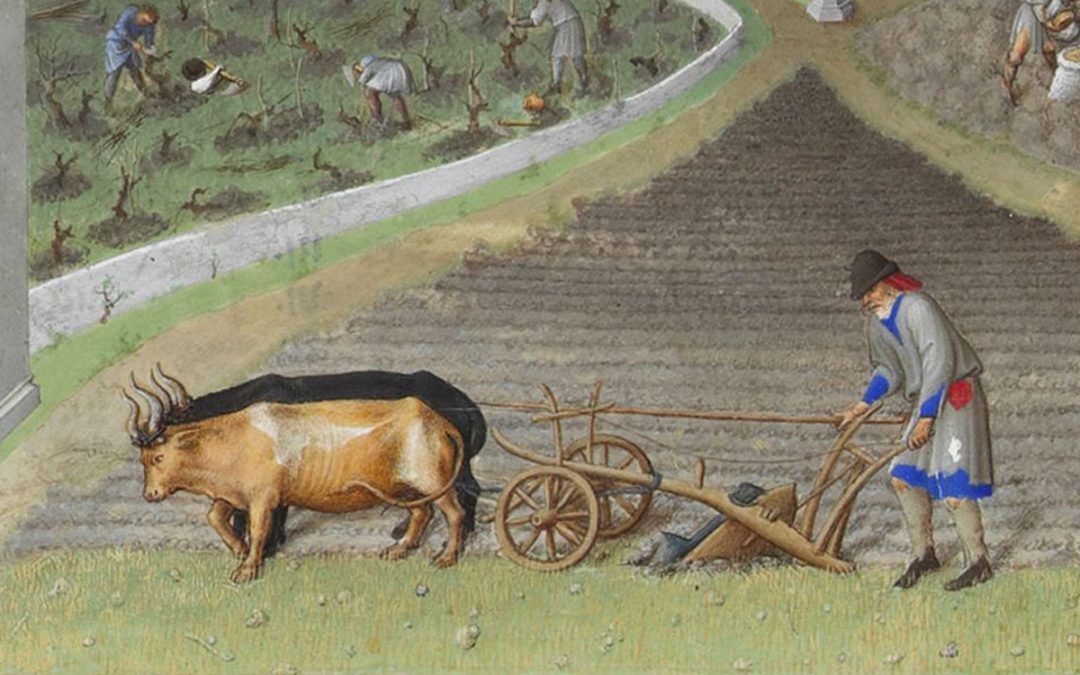Underlying great changes in medieval European society were adaptations that increased agricultural production. Few, if any, of these new techniques were of European origin, but the ready adoption, refinement, and improvement of them give evidence of innate abilities that would transform Europe and the world. Perhaps none of these new techniques was more instrumental than the heavy plow, replacing the ard, or scratch plow that worked well only in lighter soils. Originating in China around 500 AD, the heavy plow incorporated wheels and metal components that cut the soil vertically and horizontally and then turned the soil over. This made the farming of the heavy, wet, but fertile clay soils of northern Europe practical.
Another important adaptation was the horse collar, also originating in China and taking many centuries before reaching Europe. The horse collar replaced earlier methods of harnessing that had the disadvantage of restricting the horse’s airways and limiting the horse to pulling the load with its forequarters. The horse collar distributed the forces so that the horse’s breathing was not restricted while allowing the horse to push with its more powerful hindquarters. Horses became more efficient than oxen, being faster and with more endurance.
Among other important changes were the development of metal horseshoes, improvement in the production of wagon wheels and conveyances, and better methods of tanning leather. Altogether, there resulted in surpluses in agricultural production, allowing labor to be freed up for other endeavors. Subsistence farming began to give way to market farming. Towns began to grow, along with diverse manufacturing and specialization. A new merchant class arose, men of means who were not members of the landed aristocracy. This introduced a new dynamic in societal and political development, a middle class that began to erode the dominance of the feudal hierarchy. This new middle class found a natural ally in the kings in their struggles with their feudal lords. This relationship was not all peaches and cream, for the kings began to devise ways to tax the new commerce, but the result was the restoration of monarchical power. The kings were no longer reliant solely on the homage paid to them by the landed aristocracy but could raise armies directly and pay them wages out of the royal treasury.
Philosopher’s Corner – Gene Ross

